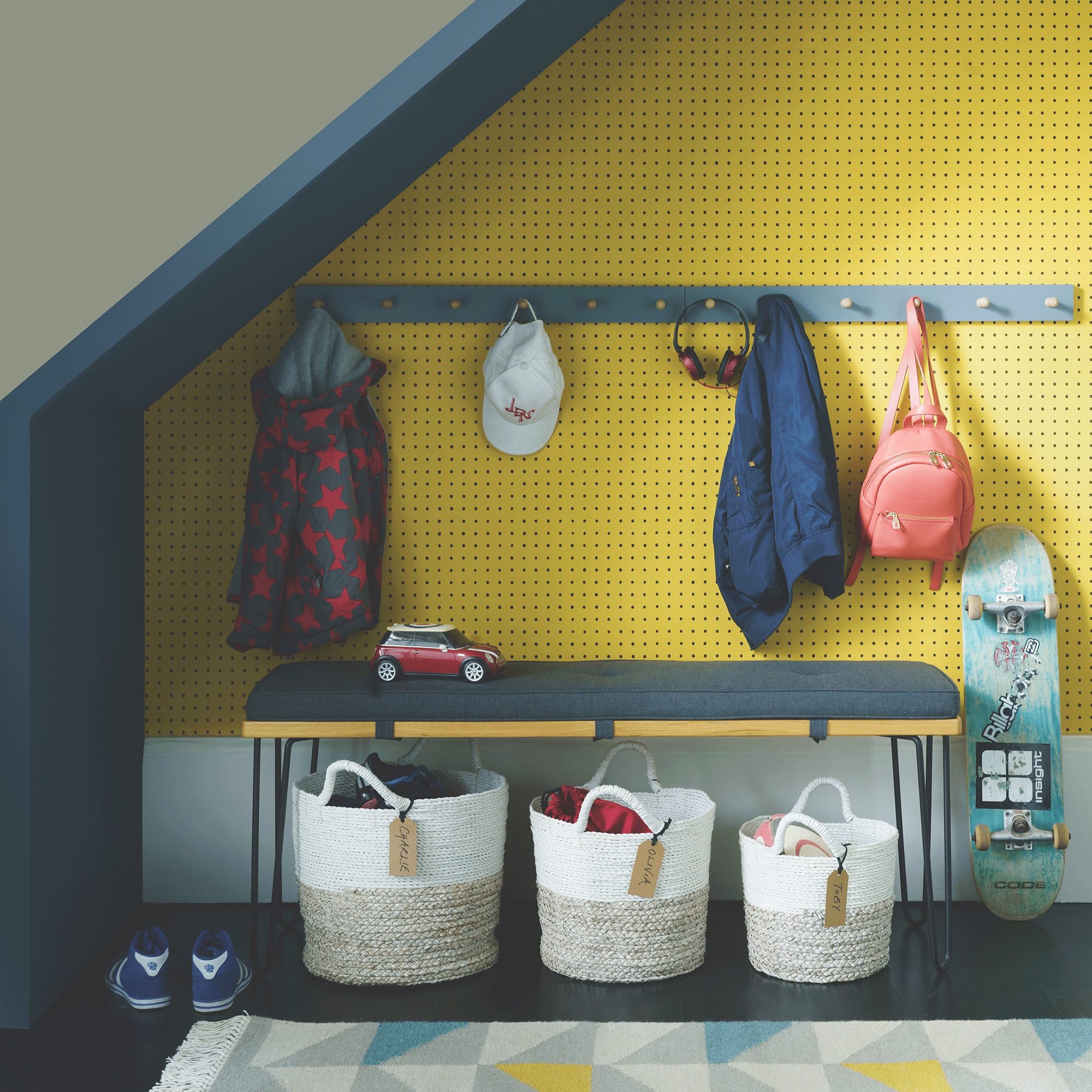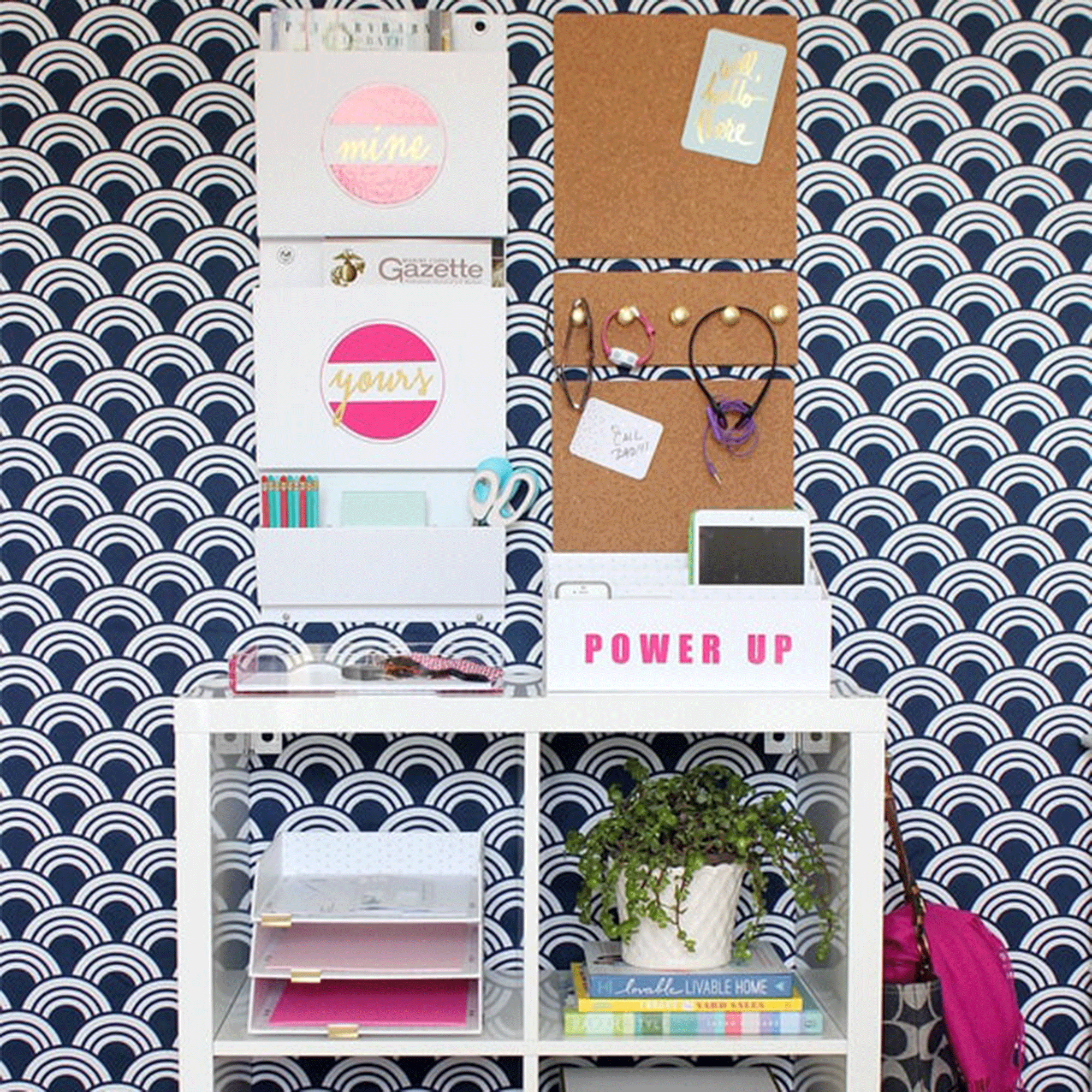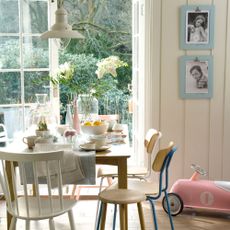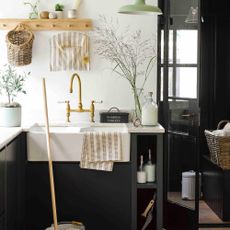Can cleaning make you feel happier? The real impact daily cleaning can have on your mind and body
Grab a duster – it’s time to give your mental health a boost
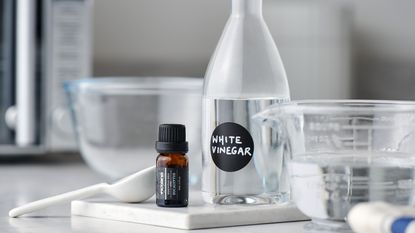


‘I’ve been battling with my mental health for over 10 years now,’ says Harriet Knock. ‘I have been through anorexia, depression and self-harm. Currently, my struggle lies with ongoing anxiety. Although I generally cope pretty well, there are times when I need to lean on my coping mechanisms – like cleaning – to feel better. Cleaning really is my therapy!’
While some might find the idea of cleaning the kitchen as more than a chore baffling, for so many people it is so much more. Harriet’s ‘therapy’ has developed into a successful blog, ‘Home with Harriet’ and a career as an Instagram ‘cleanfluencer’. She is also now an author and mental health advocate. ‘I use cleaning as a distraction,’ she explains, adding that she considers it a hobby.
‘Cleaning is accessible and affordable. It’s fully flexible, too. Unlike most hobbies, where I’d need to find childcare or physically go somewhere to take part, I can do it whenever I please.’
Is a stay-at-home mother to three young children aged 5 years and under. She is also the author of the book 'Emerging from the Storm' which is about her battles with mental health problems, from anxiety, to depression, self-harm, anorexia, and the journey to recovery. She uses cleaning as a coping tool, and posts on her Instagram and blog.

The positive effects of cleaning on mental health have been backed up by research, including a recent 2022 survey by homeware company JosephJoseph. Each participant was fitted with a smartwatch to monitor their heart rate while carrying out a variety of cleaning tasks and also completed a survey record their emotional state. An overwhelming 96% of them said they felt more positive and motivated, while 91% reported an improvement in their sense of well-being.
Research also shows that a clean home impacts positively on your physical health. A study at Indiana University proved that people with clean houses tend to be healthier than those with messy ones. ‘If you spend your day dusting, cleaning, doing laundry, you’re active,’ says the lead research scientist, Professor Nicole Keith.
How does cleaning improve your mood?
For starters, a part of why cleaning can boost your mood at home is because it’s a workout – and any exercise can make a real difference if you’re at it for long and hard enough. Back in 2008, a British Journal of Sports Medicine study by researchers at University College London found that the activity needs to be sustained for at least 20 minutes and make you out of breath to have an impact on depression.
Alex Bothwell, clinician at Oxford CBT explains, ‘The act of cleaning itself is associated with a reduction in cortisol – the stress hormone – and the physical activity involved can help to release endorphins and improve your mood.’ Endorphins are hormones that send messages to your brain triggering positive emotions.
Alex is a trainee cognitive behavioural therapist. She is currently working towards a postgraduate qualification in cognitive behavioural therapy at the University of Oxford. She works with clients experiencing depression, anxiety disorders, phobias, OCD, PTSD and panic disorders.
For Harriet, just being busy is enough to shift a stuck mood: ‘Productivity makes you feel more uplifted in my experience. You’re no longer sitting there feeling anxious and worried, you’re busy doing something and focusing on something else. I often stick upbeat music on as I clean and that helps to boost my mood, too.’
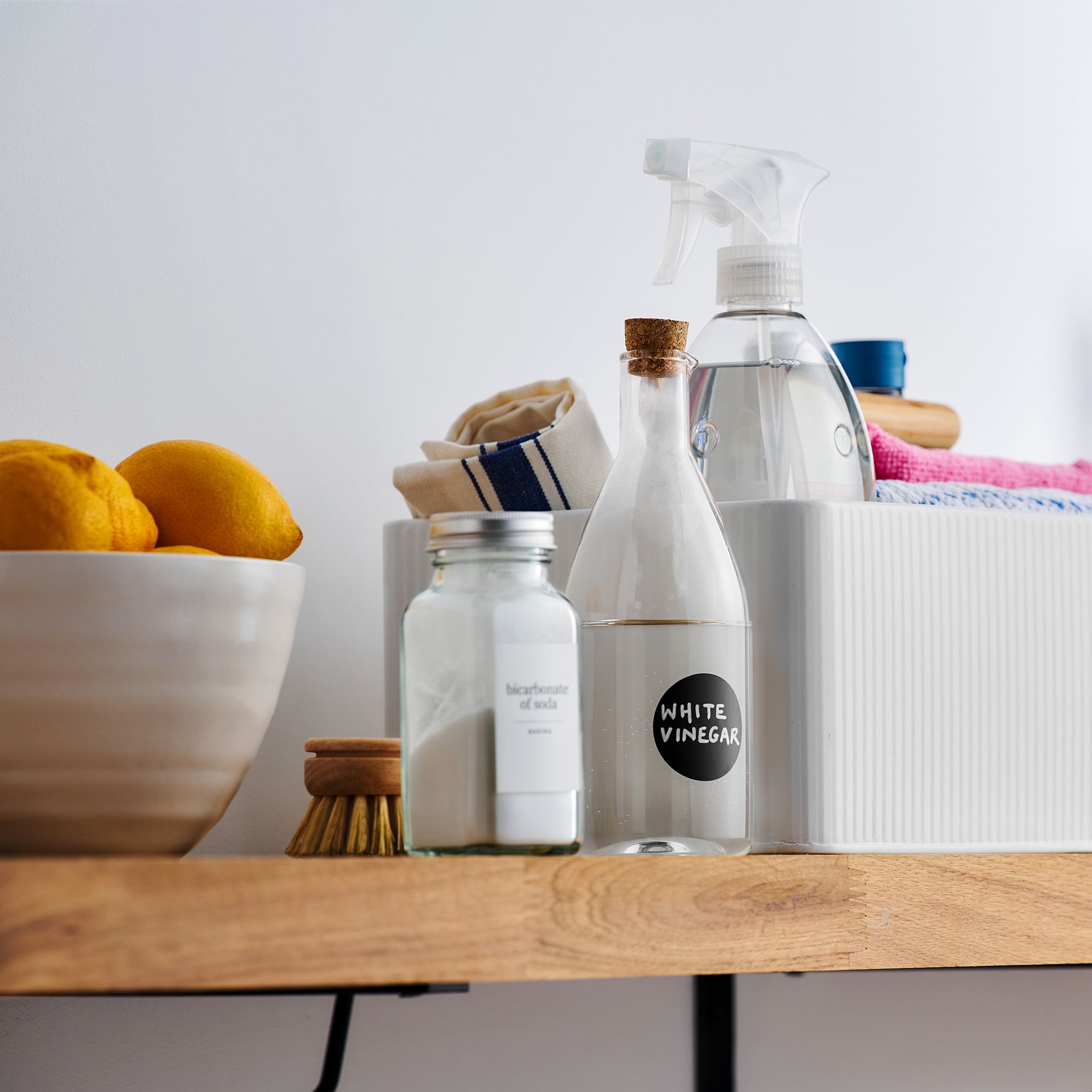
Why does cleaning calm you down?
Thankfully, cleaning isn't only about high energy and feeling pumped. That would be exhausting! Those repetitive tasks, like dusting or doing the washing up, can be as powerful as mindfulness techniques for slowing down racing thoughts.
A study published in the journal, Mindfulness, found that people who took the time to smell the dish soap and consciously feel the warmth of the water while washing-up reported a 27% reduction in anxiety, along with a 25% improvement in ‘mental inspiration’.
Harriet says, ‘It helps me to switch off my focus from thoughts and worries, and focus on the task at hand. I find it very therapeutic! You can turn that negative energy into something productive and positive.’

This calming effect is physical as well as mental: the JosephJoseph survey found that the heart rate of participants was significantly lower (averaging 63 beats per minute) after tackling cleaning tasks than before they started. Seventy-two percent of them reported feeling more relaxed afterwards.
What’s more, cleaning can help you sleep better, as studies have found that having clean sheets and making your bed are associated with a better night’s rest. Good sleep provides all kinds of mental health benefits, including improved mood.
Why do I feel happier when I’ve finished cleaning?
It’s all about regaining a sense of control: a study by the University of Connecticut, ‘Rinse and Repeat to Remove Anxiety’, found that in stressful times, people default to repetitive behaviours like cleaning because it gives them a sense of control in the chaos of life.
Neuroscientist Tara Swart adds, ‘Clutter in the home can be associated with mental clutter because you feel like you do not have things under control. Creating a pleasant, clean environment is calming for the brain. In the area of research known as neuro-aesthetics, it is beneficial to your health and mental health to be in a pleasing environment.’
When life is busy, our mental health can suffer from unfinished business – the irritating loose ends, uncertainties and ongoing issues that leave us feeling unsatisfied and insecure. When it comes to getting the closure and completion we crave, cleaning can really hit the spot. After a good cleaning session, Harriet Knock says, ‘I feel like I can relax. It provides a sense of achievement and a feeling of satisfaction. It makes me feel de-stressed, restores my inner peace and makes me feel more comfortable in my environment.’

Can cleaning make you unhappy?
Unfortunately, cleaning to improve happiness isn't always straightforward. Harriet thinks it can make you unhappy: ‘I'm a mum of three young children (soon to be four), so the work is never done. Sometimes it can feel a little overwhelming and monotonous when there are always clothes and dishes to be washed, and toys to pick up, etc. It's an endless cycle. I think everyone can feel a little out of their depth, but getting things back how you like them again makes all the difference and doesn't have to be a harrowing task. You can make housework more fun with music, or team work.’
You can always have too much of a good thing, even if you’re a self-confessed neat freak. Cleaning can become a compulsion. How do you know if your happy habits have tipped over into a sad obsession? Red flags include cancelling plans because you haven’t finished your ‘to do’ list, being late for work because you’re prioritising housework, and your cleaning activities having an impact on your physical health. If in doubt, consult a healthcare professional.
What are the best jobs to do on a bad mental-health day?
While there is plenty of evidence to suggest the great benefits cleaning can have on mental health, when you're struggling with low moods or anxiety it can sometimes be hard to summon up the motivation. Harriet says her go-to tasks are, ‘Anything that doesn't feel too overwhelming and usually something that provides an instant visual result – such as cleaning a dirty sink, or scrubbing a dirty hob. I think it reminds me that no matter how dull something gets, you can always get the shine back with a little effort!
'How much more true can you get than that when referring to someone going through a tough patch with their mental health – hang in there, you'll soon get your spark back and life will be brighter again.’
Get the Ideal Home Newsletter
Sign up to our newsletter for style and decor inspiration, house makeovers, project advice and more.

Vanessa Richmond has been a freelance writer, editor and editorial consultant since 2021. Her career in magazines began in 1998 and, apart from a four-year stint at women’s lifestyle magazine Red, it has been spent working on interiors titles including House Beautiful, Country Homes & Interiors and Style at Home. She first joined the Ideal Home team in 2006 as Chief Sub-editor and subsequently became its Associate Editor, Editor and Editorial Director. Now she writes for idealhome.co.uk and Ideal Home magazine as a freelance journalist.
-
 5 anti-resolutions I'm making to help my home run (and look) better in 2024
5 anti-resolutions I'm making to help my home run (and look) better in 2024The household tasks I'm quitting this year
By Heather Young
-
 This stunning green kitchen is packed with genius small-space design ideas that can be reused in the future
This stunning green kitchen is packed with genius small-space design ideas that can be reused in the futureAnd the best part is that each part can be repurposed
By Laurie Davidson
-
 This compact room has been transformed into a luxurious guest bedroom that proves size doesn't matter
This compact room has been transformed into a luxurious guest bedroom that proves size doesn't matterThe compact layout didn't deter this homeowner, who created a beautiful spare bedroom that's both homely and cosy
By Laurie Davidson
-
 5 anti-resolutions I'm making to help my home run (and look) better in 2024
5 anti-resolutions I'm making to help my home run (and look) better in 2024The household tasks I'm quitting this year
By Heather Young
-
 10 tricks that experts use to avoid decision fatigue at home
10 tricks that experts use to avoid decision fatigue at homeSteal back time and energy by letting these smart systems work for you
By Vanessa Richmond
-
 Family command centre ideas - avoid overwhelm with these clever organisation solutions
Family command centre ideas - avoid overwhelm with these clever organisation solutionsHow to set up and customise your families' organisation and planning hub to keep things running smoothly
By Vanessa Richmond
-
 How to check air quality at home - and why it’s really so important that you do
How to check air quality at home - and why it’s really so important that you doIt’s the place where we all spend most of our time - but what do you know about how to check air quality in your home?
By Molly Cleary
-
 How to clean when you feel overwhelmed – 12 ways to get things done
How to clean when you feel overwhelmed – 12 ways to get things doneYou can take control of dirt and clutter when you're not sure how to cope with this advice from the pros
By Andrea Childs



